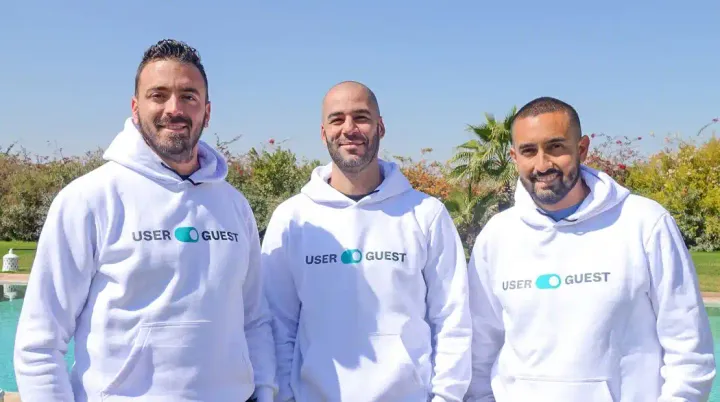President Ruto weighs in on Starlink-Safaricom spat, backs competition
Kenyan leader Williams Ruto defends Starlink's presence, emphasizing its role in pushing improved services amid competition in the internet space

Kenya’s President William Ruto has thrown his weight behind Starlink, Elon Musk’s satellite internet service, in its competitive face-off with Safaricom, Kenya’s leading telecommunications company and East Africa’s most valuable firm.
In a speech delivered at the US-Kenya Business and Investment Roundtable in New York, held during the United Nations General Assembly, Ruto threw light on the presence of Starlink, arguing that it is pushing local operators like Safaricom to improve their service quality.
This public support from the president comes in the wake of Safaricom’s expressed concerns over the satellite internet provider. Safaricom had recently urged Kenya’s Communications Authority to take a cautious approach when issuing independent licenses to satellite internet providers, such as Starlink.
It raised issues about the regulatory environment, suggesting that these providers should be mandated to collaborate with local mobile network operators to prevent potential violations, including harmful interference across territorial borders.
In a letter to the regulator, the telco stated, “Satellite coverage inherently extends to multiple territorial borders and, in doing so, has the potential to illegally provide services and cause harmful interference within the territorial borders of Kenya.”
Despite these concerns, Elon Musk’s satellite internet service, which entered the market in July 2023, has gained a foothold. It offers competitive pricing and now, the option for customers to rent hardware rather than purchase it outright, making it accessible. With a reputation for high-speed connection and extensive coverage, mostly in rural areas that local providers often struggle to reach, it has challenged Safaricom's dominance.
President Ruto, however, remains firm in his stance that this competition is beneficial for the country. His comments at the forum, acknowledging the tension, “I have my CEO for Safaricom here. Sometimes he’s not very happy with me for bringing other characters like Elon Musk. But I keep encouraging Peter that competition makes you keep ahead, and he’s been doing pretty well, I must admit.”
His remarks highlighted his view that competition spurs innovation and service improvements, underscoring his administration's openness to international players in Kenya’s tech and communications sector.
Safaricom, under CEO Peter Ndegwa, has responded to the growing competition by upgrading its services. Recently, the company announced an increase in internet speeds for both home and business users, with the introduction of a new 1000 Mbps (gigabit per second) Platinum plan.
This offering is aimed at heavy data users, including gamers, content creators, and virtual reality users. Additionally, Safaricom launched the Family Share plan, integrating mobile voice, data, SMS, and home internet into a single package for customers. These moves demonstrate Safaricom’s effort to stay competitive in an increasingly contested market.
Ruto's support for competition aligns with his broader economic goals for Kenya. During his speech, he emphasized the importance of modernizing Kenya's laws to attract and retain international investors. He noted that his government had reformed key regulations, allowing for 100% ownership of ICT companies without the need for local partners, a departure from previous requirements.
Additionally, the president highlighted ongoing efforts to harmonize Kenya’s corporate tax regulations with global standards and make the country’s Export Processing Zones and Special Economic Zones more competitive within Africa.
Ruto’s vision for Kenya’s digital future extends beyond competition between Starlink and Safaricom. He emphasized his administration's commitment to expanding ICT infrastructure to bridge the digital divide and foster innovation.
“Nairobi, home to the globally recognized Silicon Savannah, is the centerpiece of our strategy to make Kenya a leading tech hub,” he said, billing up Konza City as a top destination for investment and technological innovation in Africa.
In response to President Ruto's remarks, Elon Musk took to X (formerly Twitter) to affirm the positive impact of Starlink’s in the Kenyan market. Musk reiterated that it had already spurred local competitors to improve their offerings, reinforcing the president’s assertion that competition breeds higher service standards.
Safaricom’s initial resistance reflects the larger challenges faced by established operators adjusting to the growing influence of satellite internet providers. While it remains a dominant force, the increasing competition signals a shift in the country’s internet market, particularly in remote, underserved regions where satellite internet has distinct advantages.
As the competition between these two giants unfolds, it remains to be seen how Safaricom will navigate the evolving market pressures. However, the president's endorsement of competition as a means to drive innovation sends a clear message: Kenya’s telecoms market is open for disruption, and local operators must adapt to stay ahead.






